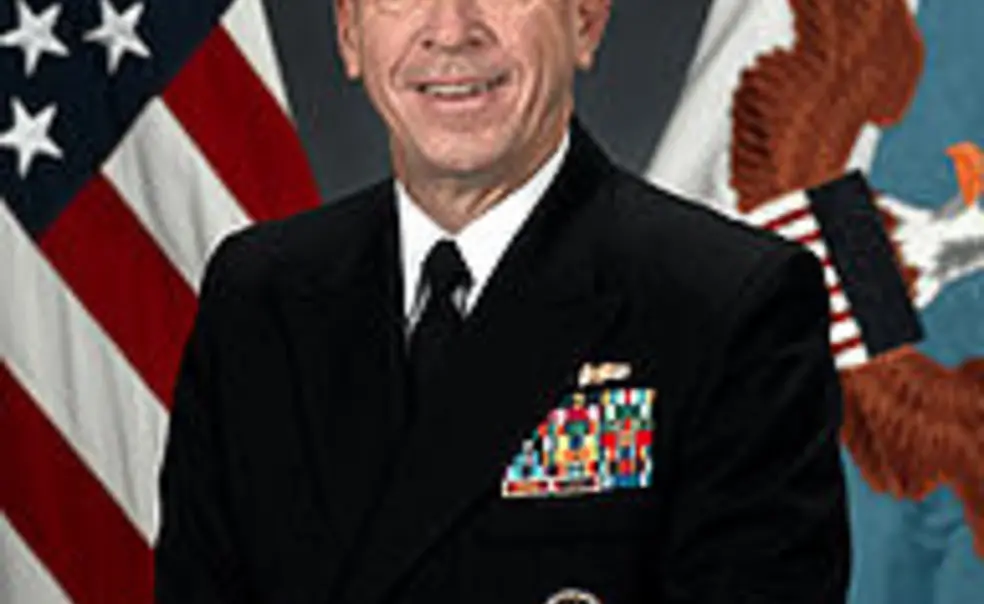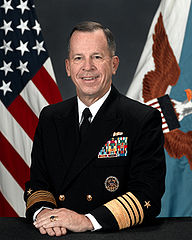Admiral-turned-professor Mullen addresses the 'strategic ecology' of global interdependence
With an American flag pin on his lapel and no need for podium or microphone, Adm. Mike Mullen looked and sounded every inch the former chairman of the joint chiefs of staff when he spoke at the Scholars in the Nations Service Initiative (SINSI) annual event Oct. 18.
Professor Mike Mullen, pictured in his former role as chairman of the joint chiefs of staff in 2007. (Photo: Wikipedia)
Mullen, currently the Charles and Marie Robertson Visiting Professor at the Woodrow Wilson School, described the “strategic ecology” of global interdependence, in which states must cooperate in the long term with each other and also with global “neighborhoods” in solving transnational problems such as joblessness, rising urbanization, extremism, and climate change.
Starting with China and the Asia Pacific region and promising to “walk around the world,” Mullen outlined the local and global problems he observed. He moved fluidly from discussing China’s hunger for resources to North Korea’s young, untested leader to a nuclear Pakistan and Syrian sectarian violence.
“We have moved from a time of control, which is what the Cold War was, to, I think, a time of influence,” he said, emphasizing the necessity for multilateral diplomacy. “It’s a time where we can’t do this alone.”
Mullen also listed his top four domestic concerns: education, national debt and the financial system, political paralysis in Washington, and cyberspace.
“We’ve got to get our own house in order, not to just take care of ourselves,” Mullen said, “but to start to answer the question I see around the world, in terms of ‘Who are you these days, United States?’ from our friends and our enemies.”
During a segment that focused on questions from students, Mullen addressed Iran, diplomatic security, “don’t ask, don’t tell,” the future of America’s shrinking armed forces, appropriateness of military intervention, Pakistan, and the implications of Washington’s bitter partisanship.
Mullen’s Wilson School seminar, “U.S. Military and National and International Diplomacy,” has been well received by students, including Joshua Bachner ’13, who told PAW that the admiral brings “a real human element” to his explanation of the role of chairman of the joint chiefs of staff. “Plus, he’s genuinely interested in the kids in his class and has some of the most interesting, crazy, and oftentimes funny stories I have ever heard,” Bachner said.

Sarah Xiyi Chen ’13 is a Woodrow Wilson School major from Arcadia, Calif.













No responses yet